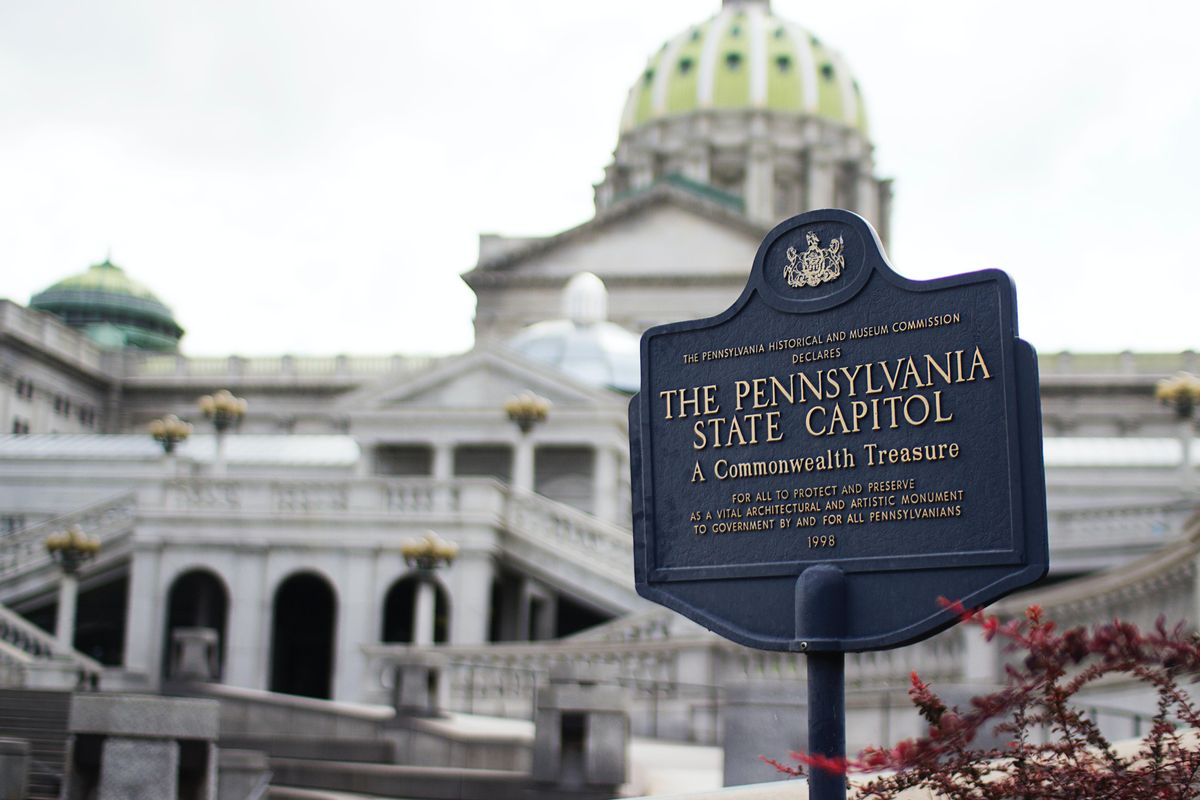
Despite major strides in the fight for LGBTQIA+ rights, there is always something else to fight for. Sometimes, it’s creating new changes to make things a little bit safer for people. But sometimes, it’s about looking back in the past and seeing how existing laws and beliefs could still harm people. Changing the way we talk about members of the community is one of the easiest ways to reduce harm, and it looks like politicians in Pennsylvania have realized that.
Recently, the Pennsylvania House of Representatives voted to erase the word “homosexuality” from the definition of prohibited acts in the state’s Crimes Code. The Associated Press reported a unanimous 198-0 vote was on a bill to clean up outdated language, because, as the supporters of the change rightfully pointed out, it’s not a crime to be gay.
“This bill provides a long overdue update to our crimes code to ensure nobody is prosecuted because of who they love,” said the sponsor of the bill, Rep. Todd Stephens (R-Montgomery), as reported by the Associated Press.
Stephens introduced the bill in November 2021 intending to “remove references to the term “homosexuality” within definitions of prohibited sexual acts within state law,” according to an article from Patch.
“The usage of this term in the definitions of ‘sexual activity’ and ‘sexual conduct’ in Sections 5902 (relating to prostitution) and 5903 (relating to child pornography), respectively, serves no purpose as homosexual acts, in and of themselves, do not constitute a criminal offense,” Stephens wrote in a co-sponsorship memo.
It is important to point out the significance of sodomy laws in the United States. Though they existed for basically as long as the country has, for much of the 19th and 20th centuries they were used specifically to target members of the LGBTQIA+ community. This is especially true regarding cisgender gay men and trans women. The use of sodomy laws against the LGBTQIA+ community became prominent (to the point where several states rewrote their laws to specifically target the community) in the late 1960s/early 1970s as the gay rights movement began to grow and take shape.
In a place like Pennsylvania, while the laws weren’t rewritten to explicitly target gay people, those in charge targeted only gay people. Many of these laws don’t exist anymore, but remnants of them still remain. That’s why this language change in Pennsylvania is so important. It legitimizes the LGBTQ+ community lawfully, even though they will still face discrimination and unfair treatment via the law. But changing that language gives people a stronger case when they have to fight back.
Rep. Dan Frankel, a Democrat from Allegheny County, has been fighting for a long time to expand nondiscrimination protections to the LGBTQ+ community. According to the Associated Press, he said the language of the current law is “cruel and absurd” and urged his fellow lawmakers to make moves regarding anti-discrimination legislation.
“In this General Assembly, sadly, it’s a huge lift to merely agree that being gay shouldn’t be illegal,” said Frankel.
The current bill cuts “homosexuality” from a section on “obscene and other sexual materials and performances” by removing it from the definition of sexual conduct, per AP.
Frankel isn’t the only one who thinks these laws are not only archaic, but also unfair. Rep. Malcolm Kenyatta (D-Philadelphia) points out that these current laws openly discriminate and keep people from holding down jobs, owning homes or having families “simply because of who they are and who they love.”
“I hope that we have these same votes for enshrining nondiscrimination protections, which we sorely need to do,” Kenyatta said.
Hopefully, this leads to more positive change, not just in Pennsylvania, but in other places where such language still likely exists.
